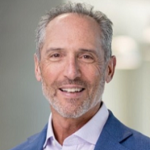2024 HFMA Annual Conference
June 24-27, 2024
The HFMA Annual Conference is the premier event in healthcare finance, drawing more than 3,000 participants from across the nation and offering 4 strategy-focused general sessions, more than 70 educational sessions, and 7 content tracks over 4 days.
We ask who was going and why. Here is what they had to say.
 Amy Amick, Chief Executive Officer, Aspirion
Amy Amick, Chief Executive Officer, Aspirion
LinkedIn: Amy Amick
The annual HFMA conference is always an exceptional use of my time. This year, I am most interested in attending our AI, Innovation & Technology’ track to hear directly from the trailblazers who are leaning into revenue cycle innovation and I look forward to sharing Aspirion’s best practices with other healthcare leaders to help them optimize AI effectively.
We serve in an industry where hospitals and care providers have to fight to be properly and fairly reimbursed—and the landscape for how to navigate the payer complexities and the intricate ever-changing landscape is perpetually evolving. The conference is an important venue to better understand emerging challenges, advance dialog on what is next to come, and collaborate on how to further enhance revenue cycle outcomes.
 Scott Allocco, Assistant Vice President, Sellers Dorsey
Scott Allocco, Assistant Vice President, Sellers Dorsey
LinkedIn: Scott Allocco
Find them at Booth: 610
Medicaid directed payment programs (DPPs) are increasingly being implemented in hospitals across the country to enhance healthcare access, quality, and equity. At Sellers Dorsey, we see an increased focus on how directed payment programs help hospitals meet Medicaid quality goals within CMS’ 2024 final Medicaid Managed Care Rule. Additionally, directed payments provide vital investments to track measurable improvements in care. At HFMA’s Annual Conference, I look forward to speaking with hospital executives regarding the impact that directed payment and Medicaid GME supplemental payment programs are having in helping hospitals, academic medical centers, and other safety net providers to promote workforce development, enhance access, and improve quality of care.
 Ryne Natzke, Chief Revenue Officer, TrustCommerce, a Sphere Company
Ryne Natzke, Chief Revenue Officer, TrustCommerce, a Sphere Company
LinkedIn: Ryne Natzke
The healthcare industry has two significant outside factors creating disruption, one scary and one exciting. Cyberattacks are scarily on the rise and healthcare providers and their vendors are a top target. It shouldn’t be a competitive advantage to be secure and provide care continuity; it should be something the industry works on together. I’m looking forward to learning from the leaders in this space to see what we can collectively do to keep doors open and limit disruption to patient care. On the exciting side, new AI tools are being introduced weekly and I’m looking forward to hearing more about how the healthcare industry can use them to help with staff burnout, provide more personalized, empathetic care and more.
 Spencer Allee, Chief AI Officer, Aspirion
Spencer Allee, Chief AI Officer, Aspirion
LinkedIn: Spencer Allee-Yeh
HFMA’s annual conference is a can’t-miss event for healthcare leaders focused on driving transformation. I’m really excited about Aspirion’s AI, Innovation & Technology track. It will give us a peek into the cutting-edge, where forward-thinking organizations are unleashing the power of AI for areas like revenue cycle optimization and payer contracting. Advanced tech is reshaping healthcare, and this track shows the tangible benefits of integrating AI into the ecosystem.
As an early AI adopter in the revenue cycle, we’ve seen firsthand how the technologies for extracting information, creating scoring models, and automating workflows have grown more sophisticated. Yet AI isn’t as widespread in RCM as you’d expect. I’m looking forward to sharing valuable insights, best practices, and innovative ways to maximize revenue integrity, minimize denials, streamline prior authorizations, and boost overall financial performance. With reimbursement models constantly shifting and compliance rules getting complex, advanced tech like AI and machine learning can be total game-changers.
 Becky Brugler, Sr. Director, Government Reimbursement Navigation Suite, R1
Becky Brugler, Sr. Director, Government Reimbursement Navigation Suite, R1
LinkedIn: Becky Brugler
Don’t miss her presentation session on Wednesday: Medicare Advantage – Time to Shuffle and Re-Deal?
The one issue that I am anxious to hear about is how providers are dealing with the confliction of an increase in Medicare Advantage enrollees with a decrease in Medicare Advantage reimbursement, which has been further exacerbated by high denial rates and slow payments.
 Matthew Zubiller, CEO, e4health
Matthew Zubiller, CEO, e4health
LinkedIn: Matthew Zubiller
I’m attending the HFMA Annual Conference to learn more about how healthcare finance leaders are tackling two pressing issues – staffing challenges and administrative costs. This conference serves as an invaluable platform for me to engage with other healthcare leaders to explore innovative strategies that address these top concerns through technology and tech-enabled services.
Furthermore, we recognize the significant impact poor patient data has on the revenue cycle. Inaccurate patient information is responsible for more than 30% of all denied claims, costing the average hospital $1.5 million and the U.S. healthcare system a staggering $6 billion annually. I am eager to hear how provider organizations are enhancing the quality of patient identifiers and associated clinical data.
This year’s HFMA Annual Conference promises peer-to-peer dialogue, shared insights, and collaborative solutions that will not only improve our current systems but also pave the way for a more efficient, quality-driven future in healthcare.
 Dr. Shelly Disser, Vice President of Innovation and Collaboration, MediQuant
Dr. Shelly Disser, Vice President of Innovation and Collaboration, MediQuant
LinkedIn: Dr. Shelly Disser, DBA
As the head of Innovation at MediQuant, I am excited about this year’s theme, ‘A New Frontier in Health.’ I am particularly interested in seeing how Revenue Cycle Leaders are embracing new technological advancements to improve revenue cycle processes, A/R days, and other key metrics. Additionally, I look forward to learning how data can play a significant role in these initiatives.
 Jim Bohnsack, Chief Strategy Officer, Aspirion
Jim Bohnsack, Chief Strategy Officer, Aspirion
LinkedIn: Jim Bohnsack
HFMA Annual couldn’t come at a better time as we confront escalating denials driven by payers’ aggressive use of sophisticated algorithms and technologies to scrutinize claims. They are applying increasingly complex criteria to claims submission and medical necessity determinations. This technological imbalance is severely impacting our revenue cycles.
I’m bringing together leaders from Kaiser Permanente, Community Health Systems, and King’s Daughter Medical Center to explore revenue cycle use cases for AI, ML, and automation, and discuss ROI potential—including gaining efficiencies and maximizing revenue. We need equally advanced AI and machine learning capabilities to analyze payer behaviors, identify underpayment patterns, optimize contract modeling, and automate denials management workflows.
While powerful, these technologies must be implemented responsibly through robust data governance and within ethical guardrails. As payers leverage AI offensively, we’re obligated to adapt using these same innovations defensively to protect reimbursements and revenue integrity. But upholding patient interests must remain paramount. I’m eager to share our organization’s AI journey and learn from these trailblazers who are on the frontlines deploying advanced technologies to level the technological playing field against payers’ data-driven tactics. Through strategic collaboration, we can get ahead of the AI curve impacting revenue cycles.
 Kim Waters, MBA, CHD-E, CHFP, Principal Consultant, CereCore
Kim Waters, MBA, CHD-E, CHFP, Principal Consultant, CereCore
LinkedIn: Kim Waters, MBA, CHD-E, CHFP
A quantum leap in technological advancement is the tag line for HFMA this year. With rapidly evolving digital solutions and increased consumer expectations, healthcare leaders have to balance legacy systems and processes with transformation efforts. With 75% of healthcare leaders saying their investments in digital transformation may be falling short I’m looking forward to open dialogue about how to leverage data to align business strategy and technology adoption to optimize financial and operational outcomes and meet the needs of the communities we serve.
 Jonathan Wiik, MHA MBA FHFMA, VP Health Insights, FinThrive
Jonathan Wiik, MHA MBA FHFMA, VP Health Insights, FinThrive
LinkedIn: Jonathan Wiik MHA MBA FHFMA
I’m looking forward to spending a week with industry experts and HFMA leadership to discuss all things revenue cycle. I have attended many HFMA Annual (aka ANIs) in the past, although this will be my first time as a Regional Executive for HFMA Region 10. With that, I hope to be inspired by all the HFMA leadership at the advance conference for the HFMA Volunteer Leaders Meeting (VLM). As far as Annual, with the theme of “new frontier in health”, I’m excited to see our own Brian Urban and Christus Health speak on our efforts with the Data Humanity Lab for health equity, as well as our own Mark Janiszewski and USCD on the HFMA collaborative Revenue Cycle Technology Adoption Model (RCMTAM). AHA’s CEO Richard Pollack is kicking off the event with HFMA CEO Ann Jordan – that is a session not to miss for sure. I’m also releasing my new book, “RCM Advantage” so make sure you come get a complimentary copy at our FinThrive booth and lounge! Finally, the trends of Generative AI, denials, workforce, and innovative technologies are always a treat and I’m excited to learn about what’s new. And, well….it is Vegas, which is always fun. See you there!
 Matt Gattuso, Managing Partner of Healthcare and Life Sciences, LogicSource, Inc.
Matt Gattuso, Managing Partner of Healthcare and Life Sciences, LogicSource, Inc.
LinkedIn: Matthew G.
Our analysis of over 20 of the nation’s leading health systems, each with revenues exceeding $1 billion, reveals a compelling insight: on average, non-clinical goods and services consume more than 27% of net patient revenue. This figure surpasses the average cost of indirect goods and services in nearly every other industry. Additionally, our data indicates that most health systems are not efficiently managing their non-clinical expenditures. This inefficiency presents an incredible opportunity for financial improvement, enabling organizations to reinvest savings into clinical innovation and enhance patient experiences.
HFMA is the premier event for connecting with top executives who drive the financial health of our nation’s health systems. This annual event provides a unique opportunity to collaborate on creating a sustainable financial model for the future of healthcare. Our industry stands on the brink of significant improvement, and HFMA is where the future of sustainable healthcare innovation begins.
 Dawn Severance, Chief of Sales, TruBridge
Dawn Severance, Chief of Sales, TruBridge
LinkedIn: Dawn Severance
Find her at Booth: 131
I most look forward to talking with revenue cycle leaders and hearing firsthand what challenges them today. While many share common problems, it’s always interesting to hear how they’ve solved them and where challenges still exist. As we continue to evolve our solutions by including enhanced analytics, RPA, and AI into our solutions, we must stay aligned to what matters most and ensure we are “hitting the mark” with customers’ needs. Health systems face high attrition, lower payer reimbursements, and increased risk of cyberattacks. HFMA Annual Conference is the ideal forum to find the best solutions to address these challenges.
 Greg Miller, Vice President of Business Development, Carta Healthcare
Greg Miller, Vice President of Business Development, Carta Healthcare
LinkedIn: Greg Miller
Financial issues have been a major concern for hospitals for many years. One-third of hospitals operate in the red and another one-third are barely breaking even. While there has been much fear and “FOMO” from hospitals about Artificial Intelligence technology, there are pragmatic ways to apply AI right now to many administrative functions in hospital operations. I am looking forward to hearing how the industry is applying AI to yield substantial cost savings, and how we can do it quickly.
 Anurag Mehta, Co-Founder & Chief Executive Officer, Omega Healthcare
Anurag Mehta, Co-Founder & Chief Executive Officer, Omega Healthcare
LinkedIn: Anurag Mehta
Staffing challenges, along with the administrative cost of healthcare, have worsened since the pandemic. A survey of revenue cycle leaders revealed that denials are one of the top concerns (67%), followed by improved patient collections (48%); and workforce retention and training (48%). I’m looking forward to connecting with healthcare leaders at the upcoming HFMA ANI conference to discuss how we can collaborate to use technology and tech-enabled services, to help solve for these priority issues.
 Michael Gao, MD, CEO and co-founder, SmarterDx
Michael Gao, MD, CEO and co-founder, SmarterDx
LinkedIn: Michael Gao
Traditional AI approaches like RPA or statistical algorithms have been implemented into the revenue cycle for some time. At this year’s conference, I’m most curious to hear about the current generation of AI, and if hospitals have been able to harness that to empower staff to practice at the top of their license and measure return on investment. In the clinical world, we talk about moving from research bench to bedside, and I think much of technology follows the same curve of going from exciting hype to practical impact.
 Kyle Hicok, Executive Vice President and Chief Commercial Officer, R1
Kyle Hicok, Executive Vice President and Chief Commercial Officer, R1
LinkedIn: Kyle Hicok
AI in healthcare finance is promising transformative changes for the industry, from enhancing efficiencies and expediting claims approvals to elevating decision-making and ultimately enhancing patient care outcomes. I look forward to the insights of HFMA attendees as we explore the potential AI holds in revolutionizing how we approach many of today’s challenges facing the healthcare revenue cycle space, from staffing shortages to optimizing payer-provider interactions.
